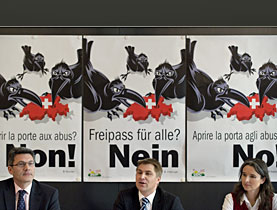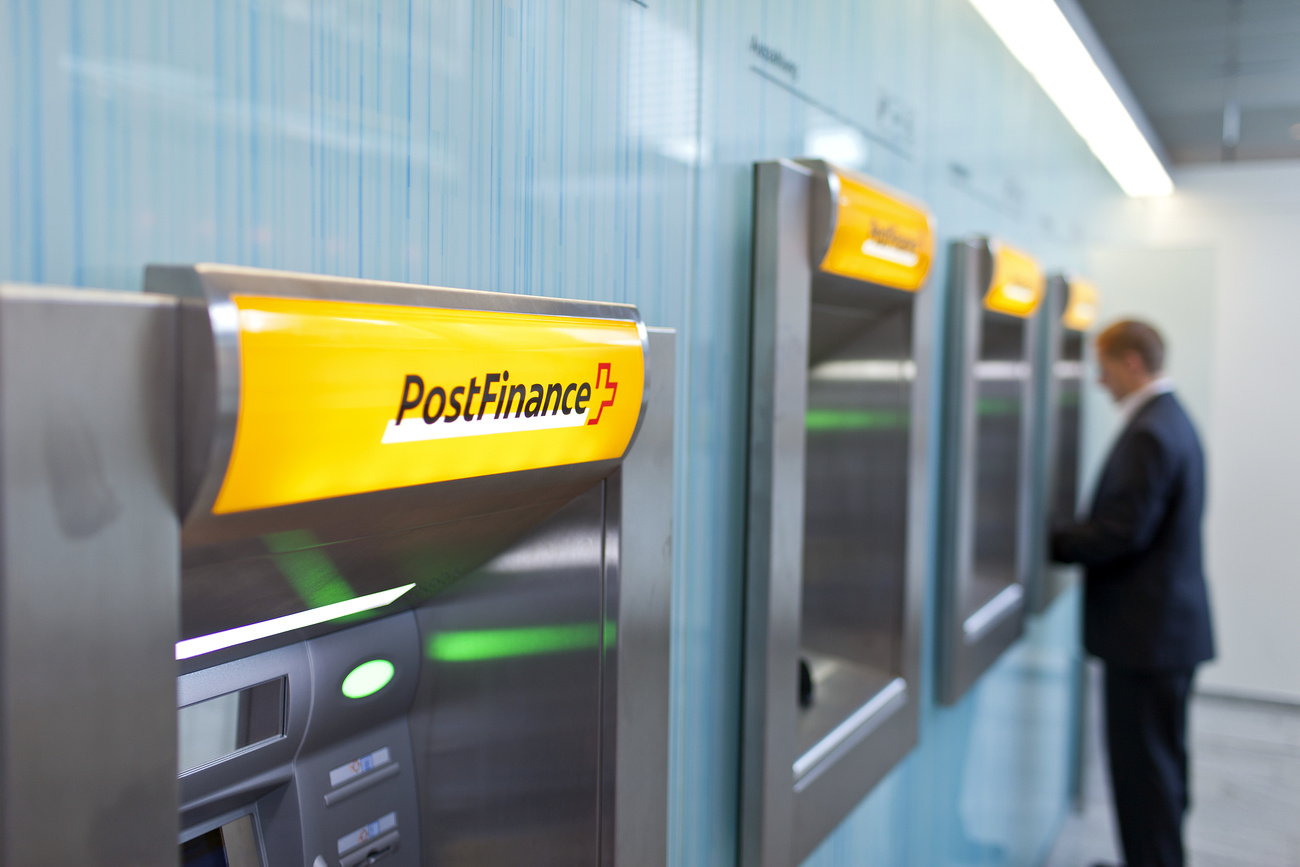Black ravens warn against EU treaty

The rightwing Swiss People's Party says the labour treaty with the European Union will undermine the country's independence and lead to more unemployment.
In February voters will have the final say on a parliamentary decision to prolong an accord aimed at easing access to the labour market and extend it to Romania and Bulgaria.
The government, business community, trade unions and most political parties argue the labour accord – also known as the free movement of people agreement – is crucial for the economy and relations between Switzerland and its most important trading partner.
However, People’s Party President Toni Brunner warned of dire consequences if the labour treaty were to win a majority at the ballot box on February 8.
“Salaries will drop, joblessness will increase, more people will take advantage of and plunder our welfare system and the level of protection against foreign criminals will be dangerously reduced,” he said on Tuesday.
Brunner lambasted parliament for lumping together two issues in one vote: the continuation of the labour deal with 25 EU member states, gradually introduced since 2002, and the extension to newest members Bulgaria and Romania.
“Our democratic rights are being undermined,” he told a news conference 40 days ahead of the ballot.
The People’s Party warned of the huge gap in living conditions and wealth between Switzerland and the two southeastern countries.
Bulgaria and Romania are the “third world in the midst of Europe” and their governments are known as corrupt, the party claimed.
Parliamentarian Pirmin Schwander called on the government to renegotiate a better accord with Bulgaria and Romania and find a way to prevent travelling people from entering Switzerland.
Black raven
The party unveiled a campaign poster showing three black ravens pecking at Switzerland.
“The ravens are aggressive, cunning and devious,” Schwander explained.
In 2007 the People’s Party mounted a large-scale poster campaign showing a black sheep being kicked out of Switzerland.
That campaign, which sought to force a nationwide vote on the expulsion of criminal foreigners and coincided with parliamentary elections, drew criticism over its alleged racism.
The party said the raven posters will be widely distributed in the last two weeks ahead of the vote. It also said that more party committees, including one with the controversial former justice minister, Christoph Blocher, will be active to promote the no vote.
Insecurity
For its part the government says that the rejection of the labour treaty would increase insecurity for Switzerland’s key export industry and blunt the competitive edge of Swiss companies.
It points out that experience to date with free access to the labour markets has paid off for businesses and employers.
The government argues that the continuation of the accord and its extension to Bulgaria and Romania are linked.
“It is in essence a vote on the first set of bilateral treaties,” the government says.
The Swiss Business Federation, economiesuisse, says the bilateral agreements are vital to the economy and helped reduce the rate of unemployment among foreigners in Switzerland.
It is not in the interest of Switzerland to beg Brussels for new negotiations in case of a no vote, according to the federation.
In the same vein, trade unions say rejection of the labour treaty would put jobs at risk especially with a recession looming.
They also warn that a deal aimed at preventing employers from undercutting salaries would become null and void if the accord was thrown out.

More
Free movement of people
Divisons
The People’s Party initially refused to back a referendum on the labour treaty.
But the party leadership later changed its stance after its youth chapter, together with two small far-right parties, collected enough signatures for a nationwide ballot.
But several prominent party members have refused to support the referendum.
Observers say newly-elected Defence Minister Ueli Maurer is facing a first test as cabinet minister.
The former People’s Party president pledged he would abide by the rules of the cabinet, which oblige him to toe the official government line.
swissinfo, Urs Geiser
Voters approved the labour treaty with the old 15 EU member states with a 67% majority in 2000. It took effect from 2002.
A second vote, extending the labour treaty to ten new member states passed with a 56% majority in 2005.
In February 2009 voters will decide on continuing the accord and extending it to the latest two EU member states.
Switzerland is not a member of the EU, but it has concluded 20 major bilateral accords with the 27-nation bloc.
There are also about 100 secondary bilateral accords between Bern and Brussels.
Negotiations are underway for a bilateral treaty aimed at regulation access to cross-border electricity and a free trade accord on agriculture.
In 1992 voters rejected a plan to join the European Economic Area (EEA), a halfway house to full EU membership.

In compliance with the JTI standards
More: SWI swissinfo.ch certified by the Journalism Trust Initiative












You can find an overview of ongoing debates with our journalists here . Please join us!
If you want to start a conversation about a topic raised in this article or want to report factual errors, email us at english@swissinfo.ch.